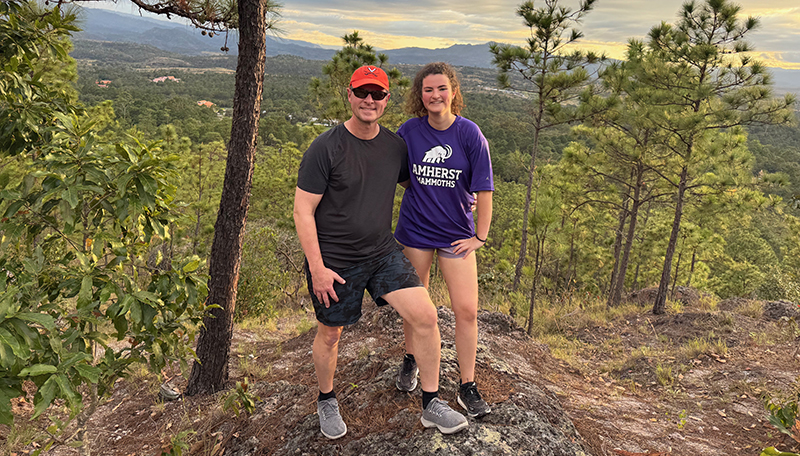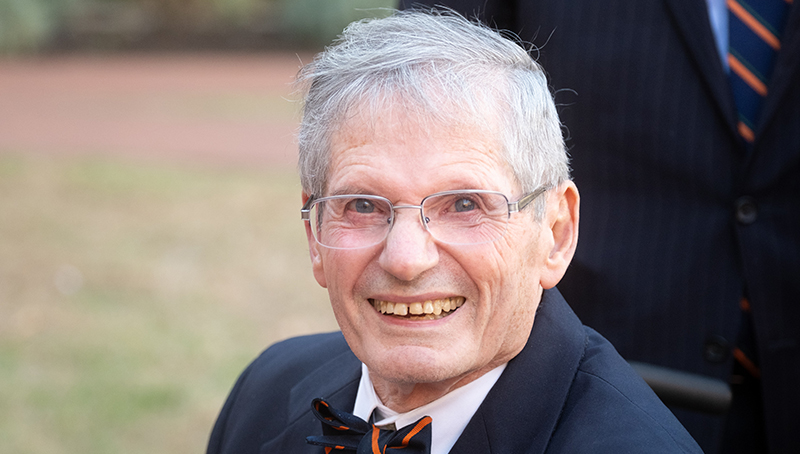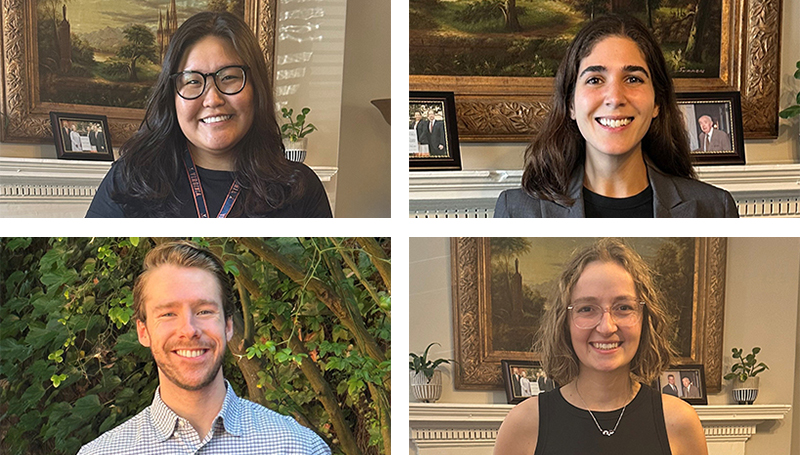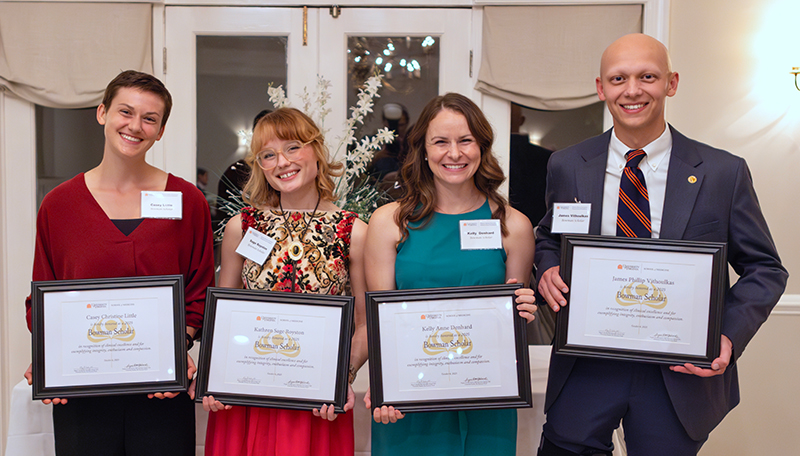
Doctor Hoo:
Philip Pearson, MD
Meet Philip Pearson, MD ’97, an English major turned colorectal surgeon, and learn about his career path and recent mission trip to Honduras.
Philip Pearson, MD ’97, never planned to become a doctor. In fact, if you had asked him in 1991, he would have likely laughed at the idea. An English major who studied at Princeton, he was working on Wall Street, experimenting with a career in finance.
That’s when a conversation with his then-girlfriend, whose mother was a radiologist, put him on a new path. The two spent a couple hours talking in her driveway, and she asked him about a career in medicine. “I was like, ‘Medicine? No way. Are you kidding me? I’d have to go back and take all my pre-med classes,’” Pearson recalls.
A career in medicine was intriguing, though. Pearson realized that there were three things about medicine that matched up well with what he was looking for: interpersonal connection, intellectual stimulation, and moral fulfillment.
“I walked away from this conversation thinking, ‘Wow, I’m definitely going to be a doctor,’” says Pearson. “And if you had asked me just hours ago, I would have said there was absolutely no way I’m going to be a doctor. It was truly a bolt out of the blue.”
When his girlfriend moved to UVA for law school, Pearson moved, too, and enrolled in pre-med classes. At Princeton, he had struggled in physics, which led him to study English instead. But with a career as a doctor now in mind, he excelled in his biology and chemistry classes at UVA and was soon applying to medical school. He was accepted at UVA and UNC, and he chose to stay in Charlottesville as a member of the Class of 1997.
As a medical student, Pearson found what he had been seeking, both with fellow students and with doctors he met along the way. Those connections, and a love for working with hands, led to his interest in surgery. He matched at Allegheny University, then finished his residency at Thomas Jefferson University, followed by a one-year fellowship at the University of Minnesota for colorectal surgery.
Pearson says he chose colorectal surgery for a number of reasons, including the broad spectrum of patients needing both short-term and long-term care and the work-life balance the field allows. His patients range from young adults with Crohn’s disease to older individuals battling colon cancer. Some require robotic-assisted procedures, while others need quick outpatient surgeries.
“Colorectal surgery has a bunch of wonderful things, and you have a great deal of continuity of care. A person with Crohn’s disease may come to see me for years. You have young people with colon problems, and you have older folks, too,” he says. “Also, colorectal is very elective. I get home at the end of the day, almost every day. When my kids were younger, I saw their games and saw them on the weekends. I can have a good life outside the hospital. I really like that part of it.”
That balance allows Pearson to prioritize his family – his wife of 25 years, Elizabeth, and two daughters, Maggie and Lucy. For the past 19 years, Pearson has worked at Mainline Health in Philadelphia. While his surgical experience includes everything from diverticulitis to rectal cancer, he says that he is at a point in his career where he enjoys focusing on smaller surgeries, which may mean up to eight operations in a day.
In 2024, Pearson embarked on a life-changing mission trip to Honduras with colleagues from Mainline Health. “It was fantastic. We work with an organization called One World Surgery. They have surgical centers in a couple different places in Central America, and this is one of their most well-established. I did 11 cases, then I saw maybe 40 people in my clinic, and helped out some surgeons with other things.”
This year, Pearson returned to Honduras, along with his daughter, Maggie (seen in above photo), an aspiring medical student. “She came down as a general volunteer and helped with everything. She helped in the orphanage, slopped pigs, and worked in the dental clinic another day. She helped me in the OR. I was choking up several times because I was literally operating with my own daughter in this cool place, helping people. It was incredibly, incredibly rewarding.” He is already making plans to return next year.
The mission trip is one way Pearson gives back and finds the moral fulfillment he was looking for in his career. Another way is to serve on the UVA Medical Alumni Association’s Board of Directors.
“I’m at a point in my life where I’ve been doing the hospital thing for a long time, and I’m happy to do other things, including being on the board of a place that I think is so special. It’s rewarding to be able to give back a little bit and to connect with other people who are also giving back – like Nikki Parkerson, MD ’97, who is a good friend from my class,” he says.
After nearly two decades at Mainline Health, Pearson remains deeply committed to his work—not just for the technical skill it requires, but for the ability to put his patients at ease in vulnerable moments. “Yeah, I have a goofy personality, which helps with people who are anxious and sets them at ease,” he says.
Whether in the hospital in Philadelphia or on a medical mission in Honduras, Pearson’s goal is the same: to connect with people and make a real difference. That includes alumni like him helping current students find their path. “We’re all out here, and most of us will be happy to make a connection or help you in any way that we can possibly help you. It’s a continuum. It’s a long continuum of people,” he says.


